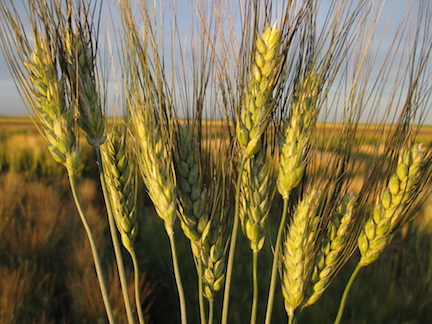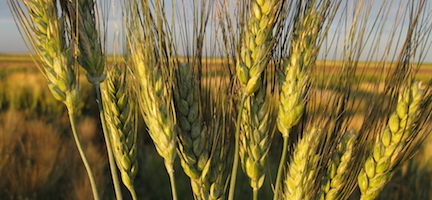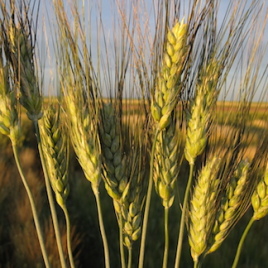
Wheat is the most favored food source for human beings on the planet and the crop can be produced successfully with improved farming practices without negative impacts on the environment. (Photo Credit: Yantai Gan)
Improved practices in the farming of wheat could lead to a significant reduction in its carbon footprint according to a new study. With the changes suggested by the researchers, the carbon footprint of wheat could potentially be lowered to the extent that it removes more carbon dioxide from the atmosphere than is emitted during production.
The findings show that reducing the frequency of fallow periods (periods during which land is not planted), coupled with the inclusion of legumes such as lentils in crop rotation, increases crop yield and reduces carbon emissions.
Original research paper published in Nature Communications on November 18, 2014.
Names and affiliations of selected authors


